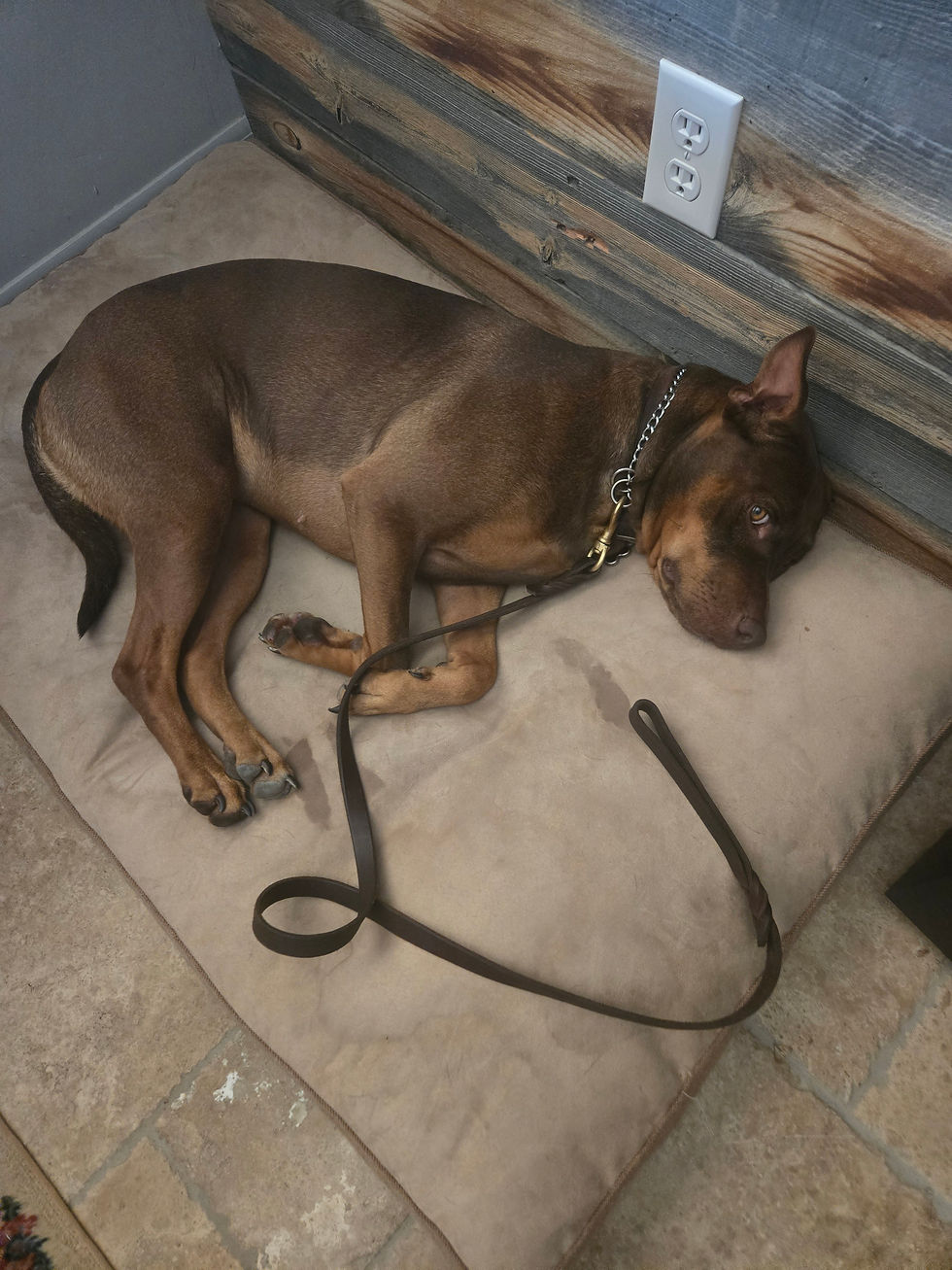Reactive Dogs: Let's Stop Pretending
- bhcpackwalk
- May 31
- 3 min read

Reactive dogs are a reality faced by many pet owners, yet their needs and challenges are often misunderstood or ignored. Denial of this fact is not going to help neither dog nor owner, or anyone they encounter. Here we delve into what it means to have a reactive dog, why it’s important to acknowledge their existence, and how we can support both dogs and their owners in navigating this often-challenging behavior.
What is Reactivity in Dogs?
Reactivity in dogs typically manifests as an exaggerated response to certain stimuli, such as other dogs, strangers, or specific environments. This response can range from barking and lunging to full-blown aggression, driven by fear, anxiety, or frustration. It’s crucial to recognize that reactive behavior is a form of communication from the dog, expressing discomfort or stress in a particular situation. However, it's important to understand that reactivity isn't limited to "challenging" dogs. In fact, a vast majority of dogs at dog parks—likely 85% or more—exhibit reactive behaviors. You'll often see owners being dragged to the entrance, enduring fence-fighting, only to be met by a rushing pack upon entry. This, unequivocally, is reactivity.
Owning a reactive dog can be emotionally taxing and isolating for pet owners. Simple activities like walks or having company over can become fraught with anxiety and uncertainty. For the dogs themselves, living with chronic stress can have significant implications for their well-being. It may affect their overall happiness, socialization skills, and even their physical health if the stress response is prolonged.
Ignoring the existence of reactive dogs perpetuates misunderstandings and stigma. It’s not uncommon for reactive behavior to be misinterpreted as aggression or disobedience, leading to unfair assumptions about the dog’s temperament or the owner’s ability to handle their pet. Dogs come from every kind of background, situation and scenario, which we cannot tell at a glance.
By acknowledging reactive dogs, we validate the experiences of their owners and open up opportunities for empathy and support within the community. This acknowledgment fosters a more inclusive environment where all dogs and their owners can feel understood and accepted. This is so incredibly important to encourage others to take the appropriate measures to keep their own dogs safe, as many will refuse to accept it if it means using a muzzle, due to the stigma surrounding them.
The stigma surrounding muzzles stems from a lack of understanding. It's crucial to realize that muzzles aren't "bad or sad"; they're actually a tool for the safety of both the dog and the public. Their use isn't limited to "challenging" dogs, either. Many perfectly well-behaved dogs wear muzzles to simply prevent them from scavenging harmful items.
Practical Steps to Support Reactive Dogs
Instead of passing judgment on reactive dogs and their owners, here are some other helpful things we can pass along instead:
• Education: Providing resources and education about reactive behavior can empower owners to better understand their dog’s needs and how to manage triggers effectively.
• Training and Behavior Modification: Positive reinforcement training and behavior modification techniques can help desensitize reactive dogs to triggers and teach them alternative, calmer responses.
• Community Awareness: Encouraging open dialogue and understanding within the community can reduce stigma and create safer spaces for all dogs to interact.
• Patience and Compassion: Both owners and community members can benefit from practicing patience and compassion towards reactive dogs and their owners. Small gestures like giving space during walks or offering a kind word or smile can make a big difference. Owning a reactive dog is NOT easy, and they are putting in the effort to keep everyone safe while they learn to navigate life with their pup.
In conclusion, reactive dogs exist, and their presence deserves recognition and support within the broader context of pet ownership and community life. By understanding the roots of reactive behavior, offering empathy to their owners, and promoting education and positive interactions, we can create a more inclusive and compassionate environment for all dogs and their human companions. We will continue to advocate for the well-being of all dogs, including those with reactive tendencies, and strive towards a community where every dog can thrive. Together, we can make a positive difference in the lives of reactive dogs and their owners.


Comments